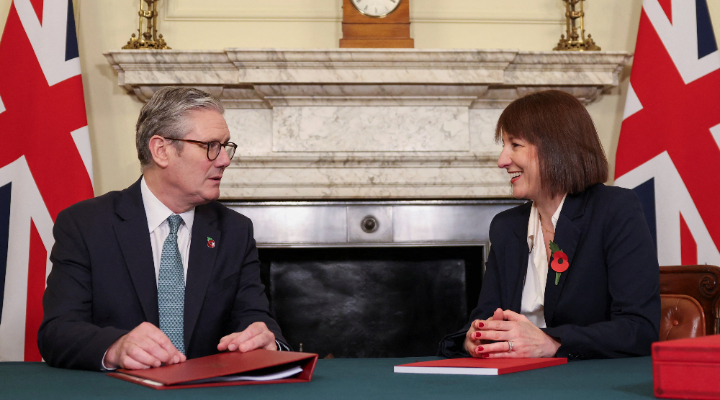
On Wednesday afternoon the chancellor, Rachel Reeves, will stand up at the despatch box in parliament to deliver the Labour Party’s first Budget in 14 years.
Budget 2024: What We Know So Far
• Rachel Reeves Says Budget Will be ‘Difficult’
• Yields Rise as Chancellor Changes Fiscal Rules
• Will Labour’s First Budget Spook Markets?
• UK Public Borrowing Spikes Ahead of Budget
• Budget 2024: What’s in Store For Pensions
• Labour Could Hike CGT at The Budget
• Is Labour Planning a Stealth IHT Raid?
What Will Happen to Income Tax, NI & VAT?
At the July General Election, Keir Starmer’s Labour Party pledged not to increase the headline rates of income tax, national insurance, and VAT. However, it is all but formally confirmed that the Treasury will get around this commitment by increasing employer contributions on national insurance, a move that could raise as much as £8.5 billion.
What Will Happen to Capital Gains Tax?
Increasing capital gains tax (CGT) would be an easy win for the chancellor in the Budget. CGT is owed when an individual sells an asset, such as a second home or shares in a company, and specifically where that sale results in a profit or “gain”. Tax is paid on the difference between what you paid for the asset and what you sold it for, though there are “allowable expenses” such as house repairs. The current annual CGT allowance is £3,000, and that resets on April 6 every year. But the rules could now change to align CGT with the marginal rates of income tax.
What Will Happen to Inheritance Tax?
The government’s plans for inheritance tax, or IHT, aren’t yet clear. But it’s possible the government will change IHT exemptions for shares on the Alternative Investment Market, the exemptions for pensions, agricultural property relief and business property relief, and the “seven-year rule” for gifts. At the moment, cash gifts are exempt from IHT provided the giver stays alive for seven years after the point of donation. Changing this rule would be “low-hanging fruit” for a chancellor with big spending commitments.
What Will Happen to VAT on Private School Fees?
Labour committed to removing the VAT exemption on private school fees in the lead up to the election, and the policy means parents of children in private schools will now likely pay significantly more for their children’s education. Private schools have called the policy an “existential threat.” We will have to wait until tomorrow to hear if the policy will in fact go ahead.
What Will Happen to Borrowing and The National Debt?
In a move that earned her a serious rebuke from the Speaker of the House of Commons Lindsey Hoyle, Rachel Reeves has already confirmed to the world’s media that parts of her Budget will be funded by a change in the UK’s “fiscal rules”. The government is currently committed to national debt falling as a share of gross domestic product during the current parliament – as opposed to over a rolling five-year period. But Reeves will make a technical change to the way debt is measured, allowing the government to spend up to £50 billion more on infrastructure projects. We will have to examine the documents accompanying the speech to discover which rules will actually change.
What Will Happen to The State Pension?
Wednesday’s speech could include a lot of measures on pensions and retirement. We already know that the state pension will rise by £460 from April next year—that’s thanks to the state pension “triple lock”, which raises the state pension by the higher of wages, inflation, or 2.5%. This time round, wages increased by 4% in the second quarter of 2024, which will now dictate how much pensioners get.
What Will Happen to Tax-Free Cash on Pensions?
Another easy win for the chancellor would be to amend the rules around tax-free cash withdrawals on private pensions. Announced at the 2014 Budget and launched the following year, those rules form part of the so-called pension freedoms, which allow savers to take up to 25% of a pension pot tax-free, up to a ceiling amount of £268,275.
What Will Happen to Pensions Generally?
Reports now suggest there won’t be a significant change to the pension tax relief system, after the chancellor was warned that an overhaul could negatively affect public sector workers. However, we will likely hear more about the government’s plans to get private pensions working harder for savers, and in particular plans trailed by the previous administration to force pension funds to disclose how much they invest in UK companies.
The author or authors do not own shares in any securities mentioned in this article. Find out about Morningstar's editorial policies.
























